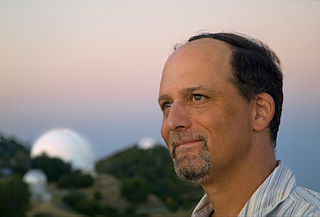A Quote by Wernher von Braun
Our sun is one of a 100 billion stars in our galaxy. Our galaxy is one of billions of galaxies populating the universe. It would be the height of presumption to think that we are the only living thing in that enormous immensity.
Related Quotes
You know; when I look at the night sky and I see this enormous splendor of stars and galaxies, I sometimes ask the question, well how many worlds are we talking about? Well do the math, there are about 100 billion galaxies that are in the visible universe and each galaxy in turn contains about 100 billion stars, you multiply and you get about ten billion trillion stars. Well I think it is the height of arrogance to believe that we are alone in the universe, my attitude is that the universe is teaming, teaming with different kinds of life forms
I will say that the God concept is at the heart of 2001 but not any traditional, anthromorphic image of God. I don't believe in any of Earth's monotheistic religions, but I do believe that one can construct an intriguing scientific definition of God, once you accept the fact that there are approximately 100 billion stars in our galaxy alone, that each star is a life-giving sun and that there are approximately 100 billion galaxies in just the visible universe.
For all our conceits about being the center of the universe, we live in a routine planet of a humdrum star stuck away in an obscure corner ... on an unexceptional galaxy which is one of about 100 billion galaxies. ... That is the fundamental fact of the universe we inhabit, and it is very good for us to understand that.
The atoms of our bodies are traceable to stars that manufactured them in their cores and exploded these enriched ingredients across our galaxy, billions of years ago. For this reason, we are biologically connected to every other living thing in the world. We are chemically connected to all molecules on Earth. And we are atomically connected to all atoms in the universe. We are not figuratively, but literally stardust.
We live on a hunk of rock and metal that circles a humdrum star that is one of 400 billion other stars that make up the Milky Way Galaxy which is one of billions of other galaxies which make up a universe which may be one of a very large number, perhaps an infinite number, of other universes. That is a perspective on human life and our culture that is well worth pondering.
I never said it. Honest. Oh, I said there are maybe 100 billion galaxies and 10 billion trillion stars. It's hard to talk about the Cosmos without using big numbers. I said "billion" many times on the Cosmos television series, which was seen by a great many people. But I never said "billions and billions." For one thing, it's too imprecise. How many billions are "billions and billions"? A few billion? Twenty billion? A hundred billion? "Billions and billions" is pretty vague. When we reconfigured and updated the series, I checked-and sure enough, I never said it.
































